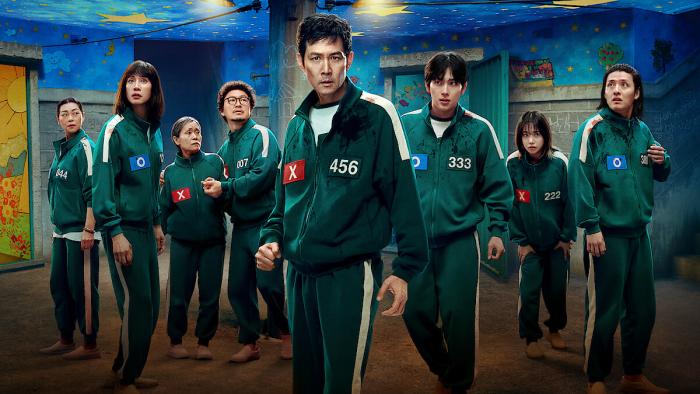By Dustin Rowles | TV | June 30, 2025

Squid Game season three — which is really just the second half of season two — might’ve been a genuinely solid series if season one had never existed. But it did. And because it did, season three becomes the Hangover II or Hunger Games: Catching Fire of television: When a show gets that big — and season one still holds the record as Netflix’s most-watched series globally — a continuation becomes inevitable. There’s just too much money on the table to walk away. But when money is the primary motivation for continuing a story, a show that once offered a sharp critique of capitalism starts to eat itself. That message falls flat, especially when the follow-up season is needlessly split in two and follows on the heels of a reality-show spinoff that was a straight-up cash grab.
It’s not that season two/three is bad — it’s just unnecessary. And worse, it’s redundant. It’s not an anthology that explores new stories with familiar themes. It’s just a remixed version of the same one, heading toward the same inevitable outcomes. This time, it tries to wedge in a note of hope — but even that feels dulled inside a system built to be hopeless.
Season three picks up where season two left off: Seong Gi-hun’s (Lee Jung-jae) attempt at an uprising within the game fails. And of course it fails, because if it succeeded, there’d be no more games. Creator/writer/director Hwang Dong-hyuk knows the deadly children’s games are the main draw. So season three snaps right back onto the rails. More games: hide and seek, jump rope. More players who willingly vote to stay in the game, helping the ruling elite — a cabal of bloodthirsty, greedy men — maintain the illusion of democracy.
“The people who wanted cheaper eggs and lower gas prices voted for this, so it’s fine!” It’s impossible not to see the parallels with America, where millions of Medicaid recipients traded away their healthcare (and potentially their lives) for the dream of cheaper groceries. Sure, they voted for it, but no one thinks the leopards will eat their face. Everyone believes they’ll be the one to outlast the others and walk away with the $45 million won. But that’s not how capitalism works — the winners are the ones who were never playing in the first place. The ones who profit from the game, not suffer through it.
Not that a broken system doesn’t eventually chew up a few people at the top, or the many foot soldiers tasked with keeping it running.
I know I’m getting lost in the metaphor, but that’s because the metaphor is the only thing in season three that still hits. Even after everything, the players vote — for another administration to keep the game going — because they’re delusional enough to think that surviving the last round means they’ll survive the next one, and profit even more.
And even the one man who returns, thinking he can take down the system from the inside and save lives? He learns the hard way: no one man can dismantle something that massive, powerful, and entrenched. He may win a battle here or there, but the war was lost before he even stepped into the game because we are all horses.
So no, I don’t recommend watching the second/third seasons. There’s nothing new here, only more heartbreak and devastation, numbed a little more each round until we don’t feel anything at all. But not watching doesn’t mean you’re not part of the game. A few cogs might snap, but the machine will never stop grinding until the players finally realize: the only way to win is to destroy the game together.
But as long as greed keeps convincing us we can win alone, we never will.